Learn Catalan Online in Just 10 Minutes a Day
Hola! Exciting news: you can now learn Catalan with Mondly. Start your first lesson today and make sure you'll speak Catalan fluently for your next
Learn how to count in Russian today. You never know when it may come in handy.
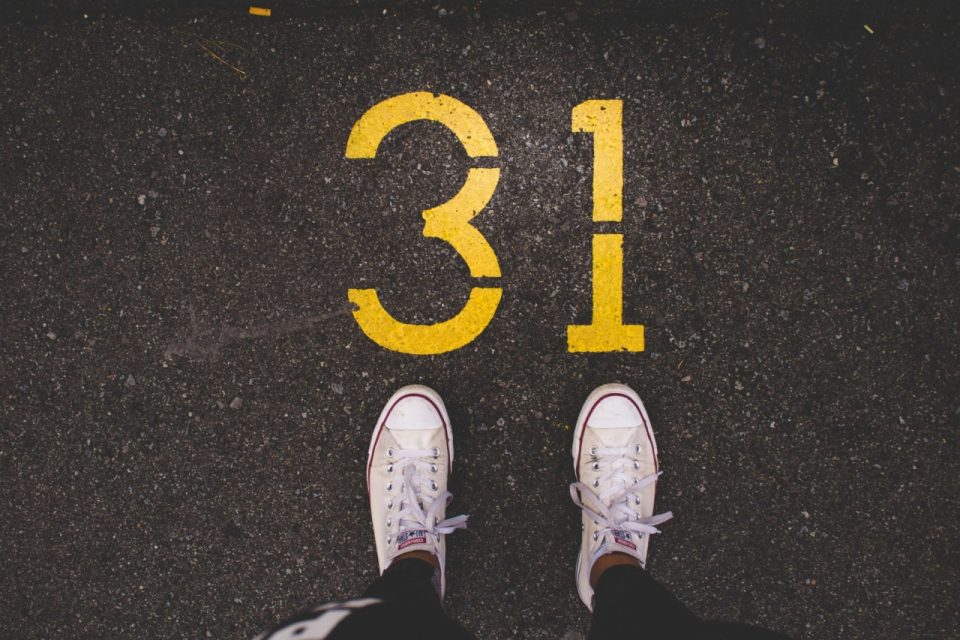
When was the last time you used numbers in one of your conversations? If you think about it, there’s hardly a day that passes without using any numbers. When learning a new language – Russian in your case – learning how to count is just as important as learning how to say “hello”. So if you’re planning a trip to a Russian-speaking country, learning the Russian numbers is a must.
Whether you need to find out what’s the price for a matryoshka, ask a stranger when is the next bus arriving or give someone your phone number, knowing the Russian numbers is definitely essential. On top of that, they are not even that hard to learn. Once you learn how to count to ten, counting to 100 is a piece of cake.
In order to understand the logic behind counting in Russian faster, it’s best to break down the information into multiple sections. As you may expect, the Russian numbers from 1 to 10 are the most important. Not only these are the ones you’ll probably use the most, but they also lay the foundations for the bigger numbers in Russian.
Here are the numbers from 1 to 10 in Russian with their respective pronunciations so you can begin practicing right now:
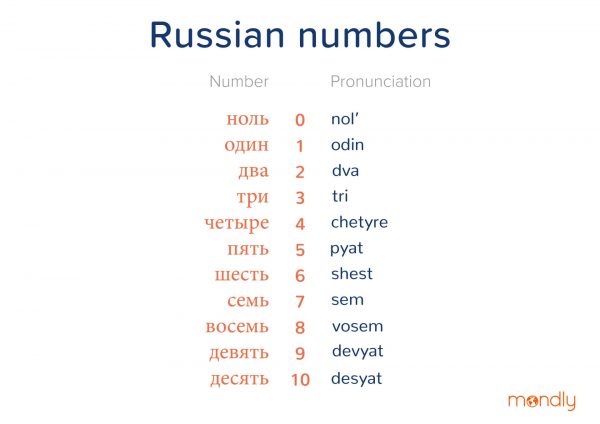
Good to know: when the numbers один (“one”) and два (“two”) are put before a noun, they can change their form according to the gender of the noun thus:
Did you manage to learn the Russian pronunciation for the first ten numbers? If you are having issues with the accent, you can get Mondly now and hear them pronounced by professional Russian speakers.
If you did manage, good job! You must be a natural.
Let’s move on to the next section: learning how to count to 20 in Russian. As you’ll see, the numbers from 11 to 19 are simply formed by adding “надцать” to the numbers 1-9.
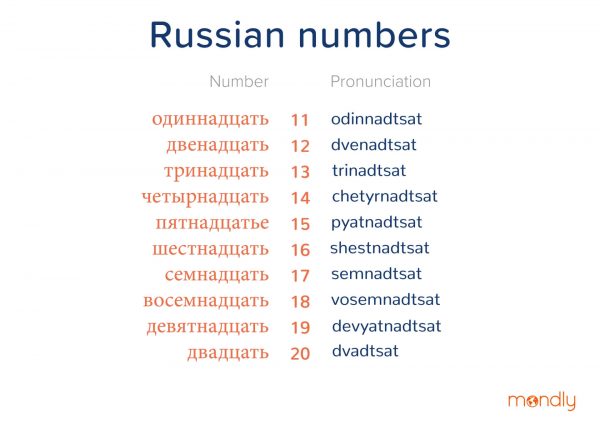
Good to know: If you want to bring a flower bouquet when you are invited to someone’s house in Russia, choose an odd number of flowers – so три, пять, семь or девять flowers. One Russian superstition says that bouquets with an even number of flowers are adequate only for funerals.
From here on, Russian numbers are formed similarly to the English numbers (minus the word “and”). If 20 is двадцать (dvadtsat), then 21 is двадцать один (dvadtsat odin) and 22 is двадцать два (dvadtsat dva). Basically, you just add the numbers from 1 to 9 to the tens.
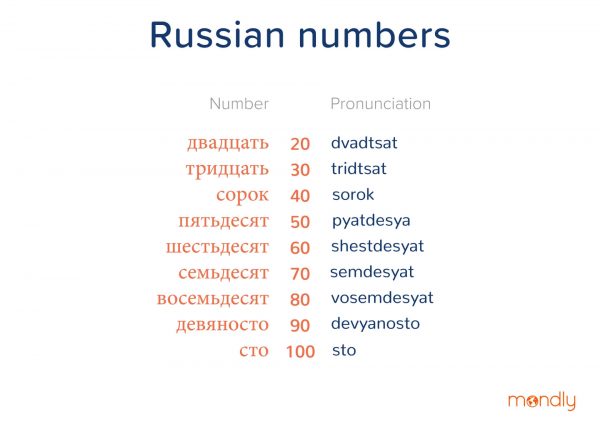
Here are some examples:
And guess what! It works the same with the hundreds.
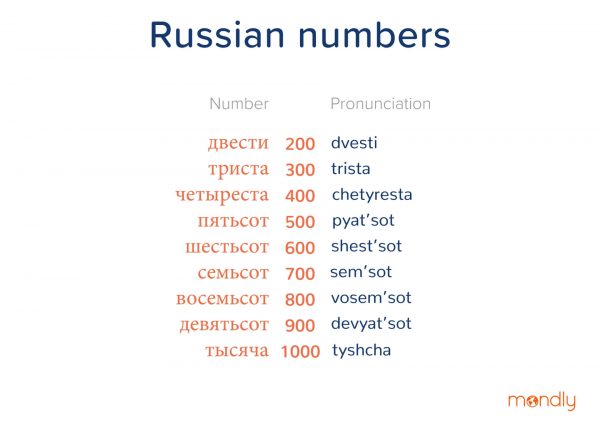
For example, if you want to say 146, you say сто сорок шесть (sto sorok shest).
Not as hard as you’d expect, is it?
Now that you’ve learned the Russian cardinal numbers, let’s end this short lesson with some ordinal numbers. You never know when they may come in handy.
Do you want to speak Russian fluently fast? Get Mondly, the award-winning language learning app that will help you speak Russian as if it were your first language.
It’s true: it can be really tricky to master Russian pronunciation if you don’t actively live in a Russian-speaking country. But with Mondly, you’ll have access to a unique, fast and highly efficient learning method that allows you to learn Russian naturally with practical topics, authentic conversations and bite-sized Daily Lessons.
Start using Mondly for free on your computer or download the app and learn Russian fast anytime, anywhere.

Hola! Exciting news: you can now learn Catalan with Mondly. Start your first lesson today and make sure you'll speak Catalan fluently for your next

Here's exactly why Facebook, Apple and Google love Mondly and why is this the best language learning app you'll ever use.

How does Santa know so many languages? 🎅 Let's discover his secret.
Thanks I’m so happy with this opportunity to learn Russia language.
Would “Raz” (PA3) be another derivative for one?
Yes, you are right. If you want to make a count you can do it like this: “Раз, два, три…” But when we specify the number of items, it is mandatory to use the form “Один”: Один кот, одна машина. You can’t say “Раз кошка, раз машина”.
But it can be applied in literary techniques
If I remember correctly (I learned Russian a while ago) “Ras” would count more as “first” while “Odin” would count more as “one”, but when counting you can use “Ras” and “Odin”
I memorized every Russian letter and its pronunciation in 3 days along with each letter sound with the punctuation of the hardener and softener. And for the future there will be more complicated lessons that require guidance from a teacher. Especially in the nominative, accusative, dative, genetive, instrumental, and prepositional cases. Trust me, we need a teacher! lol
Omg russian is challenging however I’ve to study it
I memorise songs and poetry, Russian and Mandarin. So I can sing and recite out loud in this house where I live. I’m retired and all my life have tried to study and learn new things.